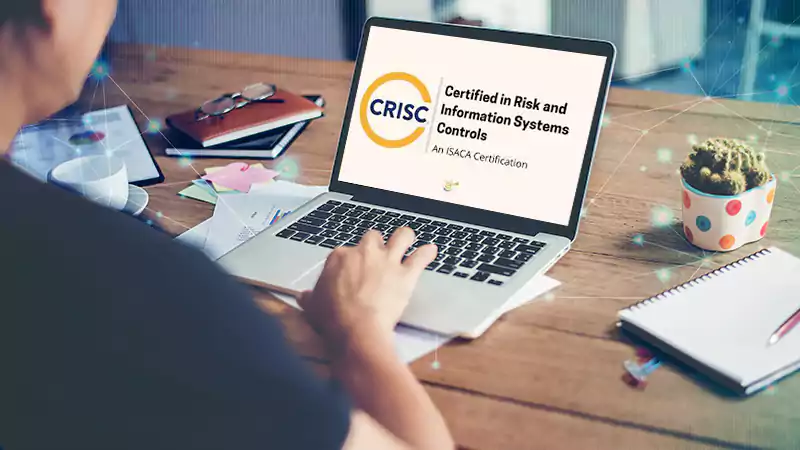PMP – Project Management Professional certification has been around for so many years and it is still one of the hottest certifications because many job advertisement requires this certificate and it is very helpful for managing small, medium, and even large-scale projects. In the exam, there are many modules and the candidates should have a good level of expertise to achieve this certificate.
It is important to know all the latest PMP certification courses to successfully pass the exam.
What are the Topics of the PMP Exam?
We prepared the list based on one of the most popular PMP courses offered by Orhan Ergun. Below are the topics that are covered in order, with his PMP course.
Module 1: Project Management Fundamentals
- Lesson 1: PMBOK 6 and Project Definition
- Lesson 2: Project Management: Definition and Importance
- Lesson 3: Portfolios, Programs, Projects, and Operations
- Lesson 4: Why Projects succeed or fail
Module 2: Project Environment
- Lesson 1: Organizational Influences on Projects
- Lesson 2: Enterprise Environmental Factors & Organisational Process Assets
- Lesson 3: Organizational Systems & Functional Structures
- Lesson 4: Matrix and Projectized Structures
- Lesson 5: Project Management Office, Project Governance and Team
- Lesson 6: Project Lifecycle and Phases
- Lesson 7: Project Characteristics
- Lesson 8: Project Management Processes
- Lesson 9: Process Groups and Knowledge Areas
- Lesson 10: Project Management Data and Information
- Lesson 11: Constraints, Assumptions, and Lessons Learned
- Questions and Answers
Module 3: Project Integration Management
- Lesson 1: Project Selection & Economic Models
- Lesson 2: The Project Manager
- Lesson 3: Develop Project Charter
- Lesson 4: The Project Management Plan
- Lesson 5: Managing Project Work and Knowledge
- Lesson 6: Integrated Change Control
- Lesson 7: Configuration Management & Project Closing
- Questions and Answers
Module 4: Project Scope Management
- Lesson 1: Project Scope Management
- Lesson 2: Plan Scope Management
- Lesson 3: Requirements
- Lesson 4: Defining Scope Definition
- Lesson 5: Work Breakdown Structure (WBS)
- Lesson 6: Scope Validation and Control
- Test questions and answers
Module 5: Project Schedule Management
- Lesson 1: Planning Schedule
- Lesson 2: Defining and Sequencing Activities
- Lesson 3: The Network Diagram
- Lesson 4: Solving Network Diagrams
- Lesson 5: Estimating Activity Duration
- Lesson 6: Developing and Controlling the Schedule
- Questions and Answers
Module 6: Project Cost Management
- Lesson 1: Cost Planning
- Lesson 2: Estimating Costs and Factors affecting Costs
- Lesson 3: Determining the Budget
- Lesson 4: Control Cost and EVM
- Questions and Answers
Module 7: Project Quality Management
- Lesson 1: Definitions and Quality Theories
- Lesson 2: Planning Quality
- Lesson 3: How to manage quality
- Lesson 4: Quality Control
- Questions and Answers
Module 8: Project Resource Management
- Lesson 1: HR Theories and Resource Planning
- Lesson 2: Acquiring and Estimating Resources
- Lesson 3: Developing the Team
- Lesson 4: Human Resources Models
- Lesson 5: Managing and Controlling Resources
- Lesson 6: Resolving Conflicts
- Lesson 7: Project Team Roles
- Questions and Answers
Module 9: Project Communications Management
- Lesson 1: Plan Communications
- Lesson 2: Manage Communications
- Lesson 3: Performance Reporting
- Lesson 4: Monitor Communications
- Questions and Answers
Module 10: Project Risk Management
- Lesson 1: Introduction and Definitions
- Lesson 2: Inputs to Risk Management
- Lesson 3: Plan Risk Management
- Lesson 4: Identify Risks
- Lesson 5: Qualitative Risk Analysis
- Lesson 6: Quantitative Risk Analysis
- Lesson 7: Responding to Risks
- Lesson 8: Risk Register and Monitor Risks
- Questions and Answers
Module 11: Project Procurement Management
- Lesson 1: Introduction and Definitions
- Lesson 2: Plan Procurement Management
- Lesson 3: Sourcing Sellers
- Lesson 4: Conduct Procurements
- Lesson 5: Types of Contracts 1
- Lesson 6: Types of Contracts 2
- Lesson 7: Control Procurements
- Lesson 8: Project Manager’s Role
- Questions and Answers
Module 12: Project Stakeholder Management
- Lesson 1: Who is a Stakeholder?
- Lesson 2: Identifying Stakeholders
- Lesson 3: Plan Stakeholder Engagement
- Lesson 4: Manage Stakeholder Engagement
- Lesson 5: Monitor Stakeholder Engagement
- Questions and Answers
Module 13: Professional and Social Responsibility
- Lesson 1: Code of Ethics and Professional Conduct
- Lesson 2: Responsibility
- Lesson 3: Respect
- Lesson 4: Fairness
- Lesson 5: Honesty
- Questions and Answers
Module 14: Standard for Project Management
- Lesson 1: Introduction and Definitions
- Lesson 2: Value Delivery Systems
- Lesson 3: Creating Value
- Lesson 4: Functions associated with projects
- Lesson 5: Product Management Considerations
Module 15: Project Management Principles
- Lesson 1: What is a Principle?
- Lesson 2: Stewardship and Team
- Lesson 3: Stakeholders and Value
- Lesson 4: Systems Thinking and Leadership
- Lesson 5: Tailoring and Quality
- Lesson 6: Complexity and Risk
- Lesson 7: Adaptability, Resilience, and Change
Module 16: Project Performance Domains
- Lesson 1: The PMBOK 7th Edition
- Lesson 2: Stakeholder and Team
- Lesson 3: Develop approach and Lifecycle, and Planning
- Lesson 4: Project work and Delivery
- Lesson 5: Measurement and Uncertainty
Module 17: Tailoring, Models, Methods, and Artifacts
- Lesson 1: What is Tailoring?
- Lesson 2: Leadership and Communication Models
- Lesson 3: Motivational, Change, and Transition Models
- Lesson 4: Complexity and Team Development Models
- Lesson 5: Conflict, Negotiation, and Salience Models
- Lesson 6: Models, Methods, and Artifacts likely used in Performance Domains
- Lesson 7: New Exam Tips: People
- Lesson 8: New Exam Tips: Process and Business environment
- Questions and Answers (1-9)
- Questions and Answers (10-20)
- Questions and Answers (21-30)
- Questions and Answers (31-39)
- Questions and Answers (40-50)
Module 18: Agile Practice Guide
- Lesson 1: Introduction to Agile
- Lesson 2: Agile Manifesto and Principles
- Lesson 3: Scrum
- Lesson 4: Kanban and Extreme Programming
- Lesson 5: Behavior Driven Development (BDD), Crystal and Scrumban
- Lesson 6: Feature Driven Development and Dynamic Systems
- Lesson 7: Others Agile Methodologies
- Lesson 8: Uncertainty and Lifecycle Selection
- Lesson 9: Implementing Agile
- Lesson 10: Mapping Knowledge Areas to Agile Work Process
As mentioned, it is a wide array of knowledge and www.orhanergun.net is offering the best PMP certification Online course for the latest version of the exam.








